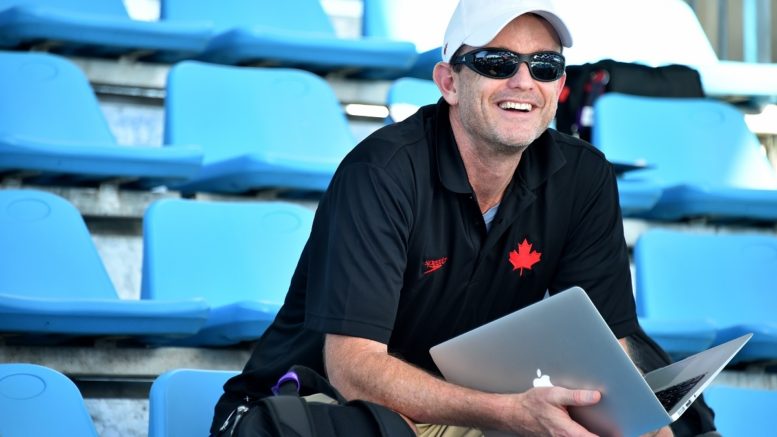It has been a relatively dry year for Canadian Paralympic swimmers, and Wayne Lomas believes his athletes have lost more time than most.
While many national organizations had their athletes back in the water fairly quickly, Team Canada lagged behind because of Covid-19 protocols.
“We did some comparative data with a number of nations around the world, our desktop research,” said the national Paralympic team coach and associate high-performance director.
“We found that we were one of the last countries to get our swimmers back into the water.”
Lomas joined the Canadian group after serving as Team Leader for the Aussies in multiple national events, most notably the Rio 2016 Olympic Games, where they brought home 10 medals, including three gold. He was also at the helm of the Paralympic team that won 29 medals, nine of which were gold.
Taking the job in 2018, Lomas quickly found success with the Red and White. The squad won 40 medals at the 2018 Pan Pacific Championships, his first major meet at the helm, and followed up that performance with 14 medals at the 2019 World Championships, an improvement of two medals from the 2015 event.
Canada did not send a team to the 2017 event.
The Australian believes the effect on his swimmers was equally mental as it was physical, depriving them of the chance to connect with those who face similar daily challenges. Lost to all was the home base the national team program offers elite swimmers usually spread across the country.
“We actually had people missing the social connection they got from being with their friends,” said Lomas. “And that was a powerful piece that came through to us.”
The solution at the beginning of the pandemic was common across every industry: group Zoom calls. Lomas quickly realized the overpopulated calls weren’t engaging everyone on an individual level, so he started organizing smaller calls with athletes that had something in common.
That worked for a while, but as they moved into last summer, he found the swimmers didn’t need it anymore, so they moved on.
Now, as the athletes prepare for the Paralympics in Tokyo this summer, Lomas says they are challenged with blocking out the many possible distractions.
“People who are focused on their own high-performance, or school and life, are also being inundated with noise that we don’t fully understand, but [it] impacts us a lot,” said Lomas. “So that’s where we are at the moment.”

